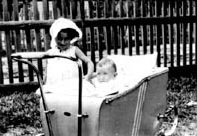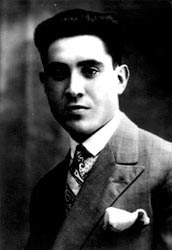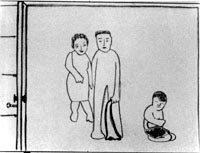Everything's For You reflects the fimmaker's relationship with his deceased father, a man who survived both the Lodz Ghetto and Auschwitz. The film utilizes a combination of previously shot material (1974-78), family photographs, archival footage, optically printed current footage, cell animation sequences (by Emily Hubley), and computer graphics to create a mosaic, a meditation on filial relationships. Dialogue is in both Yiddish and English.

"I would like the pulse of the construction, the rhythms of the visuals to speak as clearly as the sparse aural track. I would like to leave the impression which conveys the tensions of the father/son relationship, the sense of loss at a parent's death, and the realizations that the cycle is somehow potentially played out, once again, in one's own back yard."
"Although the images and visuals are specific to my experience and background, I see this work in the broader context of reconstructing family histories in order to better understand and live with filial relationships. In some ways, the act of making this film is an opportunity to continue a relationship, a way of living with a father who left so much unsaid and untouched, and whose expectations continue to haunt me years after his death."
—Filmmaker Abraham Ravett

"Massachusetts filmmaker Abraham Ravett, whose father lived in the Nazi-besieged Lodz Ghetto as well as Auschwitz, builds his film around his discovery that his father's first family had perished during the war. Assembled from home movies, children's drawings, interviews with his parents, and the three surviving photographs from his father's life in Poland, the film is an extraordinary document not only of one man's life but his son's bewildered response to it."
—The Boston Phoenix, May 11, 1990

"The juxtaposition of old material against new—of footage shot in the Lodz Ghetto by an anonymous witness against a sophisticated array of computer-altered imagery—lends this film a haunting, disjunctured quality... the film expresses two themes that are important to Ravett: the cyclical nature of parent-child relationships and the necessity of cultural memory... silence pervades Ravett's work: narration, in Yiddish with English subtitles, is sparce, frequently at odds with movement on the screen; in conversation, Ravett's questions, asked from a distance, go mainly unanswered."
—The Daily Hampshire Gazette, January 23, 1990
Available on DVD.